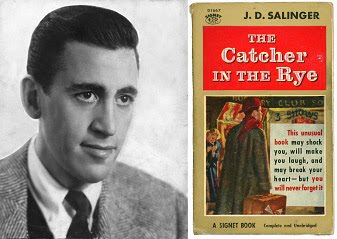Anyone who chooses, in this day and age, to become a writer has at least one moment of enlightenment, one moment when we read something so powerful and compelling that it leads us to believe we might want to dedicate our lives to a cruel and unforgiving pursuit. For me, there were a myriad of influences that set me on the path: MAD magazine, Stephen King, Dave Barry, vintage issues of Sports Illustrated. But I never took the craft of writing as seriously as I probably should have; real literature bored me. I'd write my English papers with Cliff's Notes; I found the Bronte sisters stultifying. None of it spoke to me, and I made it all the way through college imagining that all I had to do, in order to become a successful sportswriter, was to read other sportswriters. My ambitions were limited.
I was 22 when I took my first job, in Akron, Ohio. I lived, for the first three months, in a terrible apartment in a sketchy neighborhood. My furniture was rented. My neighbors held tireless arguments. I thought about packing up and leaving, but I had no idea where I'd go. At some point, I was speaking on the phone to a friend, who brought up Catcher in the Rye. I told him I'd never read it. I thought it was a children's book. I didn't see how it held much relevance. But I was bored, and emotionally vacant, and the book (with that pure and whitewashed cover) cost eight dollars, and so I bought it. And I read it. And then I did something I'd never done before: I read it again. And for a while, I went to the bookstore with the sole purpose of finding novels whose endorsements compared it directly to Catcher in the Rye.
There are--ironically, given Holden Caulfield's intolerance for "phonies"--a ridiculous number of books that fit into this category, just as there are a million brilliant lines I could quote from Catcher--this song by the Old 97's coins one of Holden Caulfield's phrases for its title--but they all feel a little bit like cliches at this point. That's the beauty of Catcher, and of Salinger's writing in general*: It so effectively laid out the emotional struggles of modern youth that it became a cliche. There is not a single coming-of-age movie that doesn't, in some way, owe a debt to Salinger. And I'm sure I'm one of hundreds of writers who fell into their avocation because Holden Caulfield spoke to them when they were young and confused, when the very idea of pursuing a career in a thankless profession seemed overwhelming and impossible. There was nothing like it then, and while there might be a million things sort of like it now, none of them could ever mean as much to as many people.
I'm older now, of course, and I realize that Catcher is not the greatest book of the twentieth century,** or perhaps even the most important--but I would imagine that no book had a greater impact on American culture--no book inspired more art--than this one. And I know I wouldn't be here without it.
*And this remains one of the greatest short stories I've ever read.
**I'd probably argue for Ralph Ellison's Invisible Man.

No comments:
Post a Comment